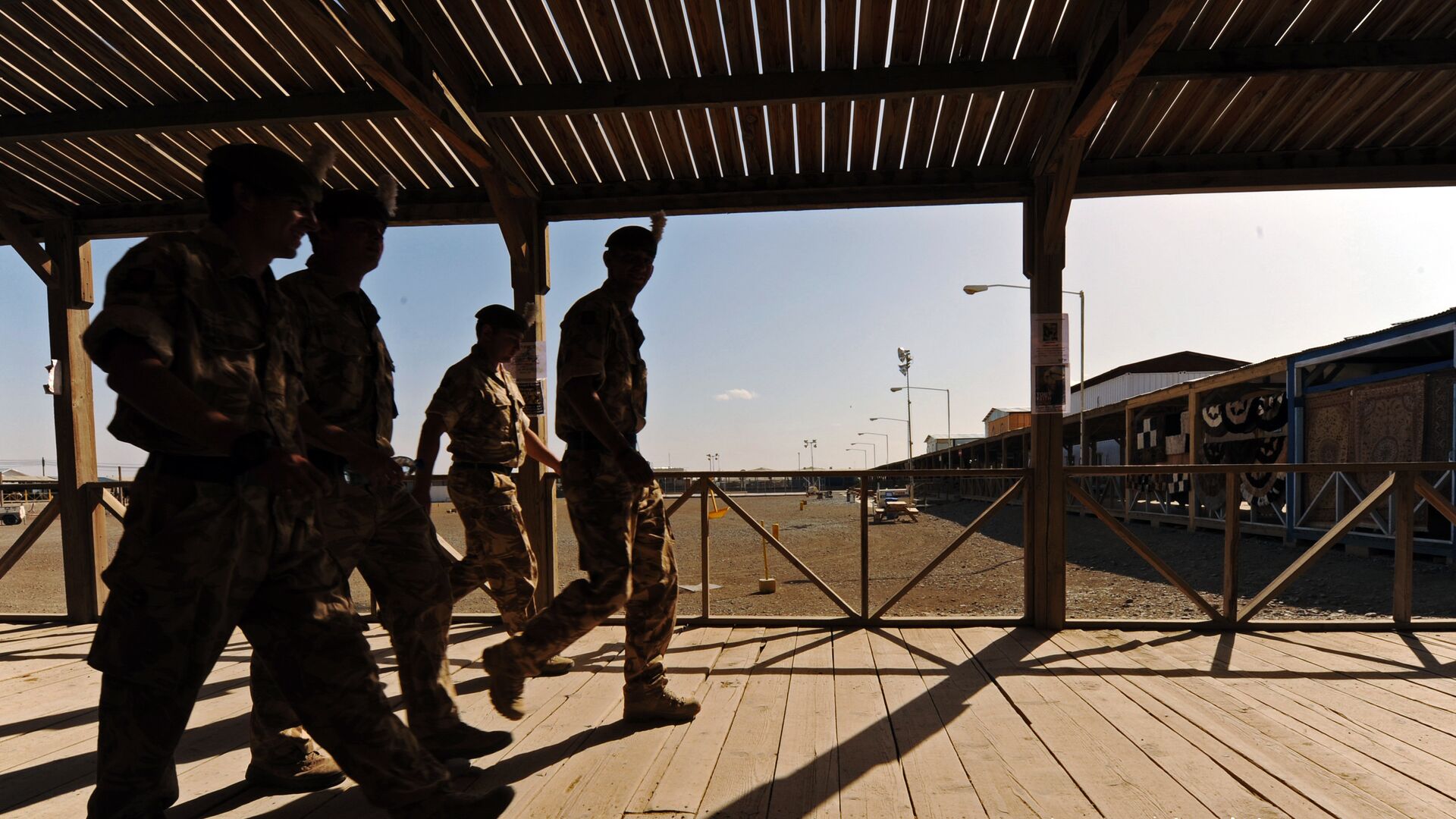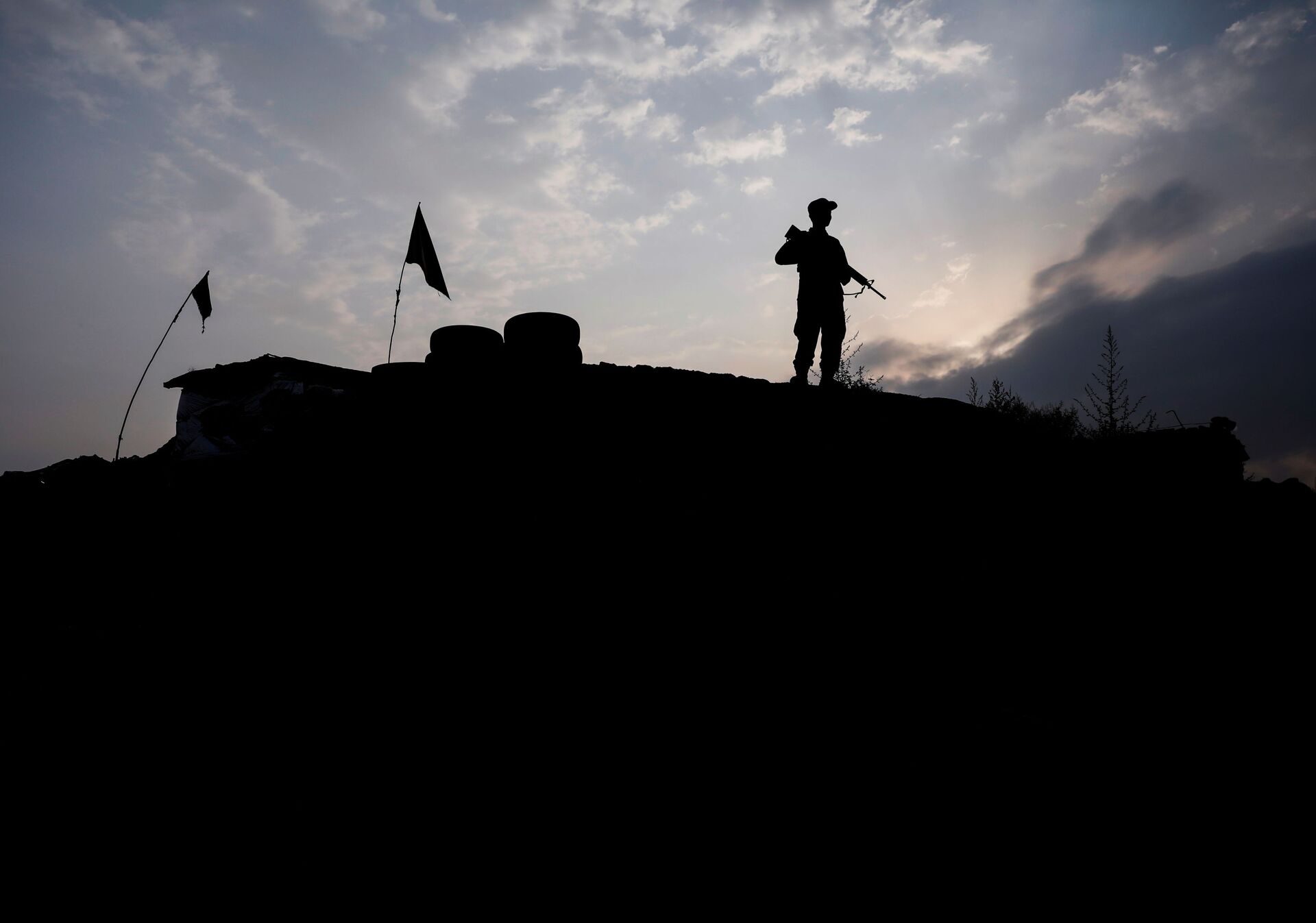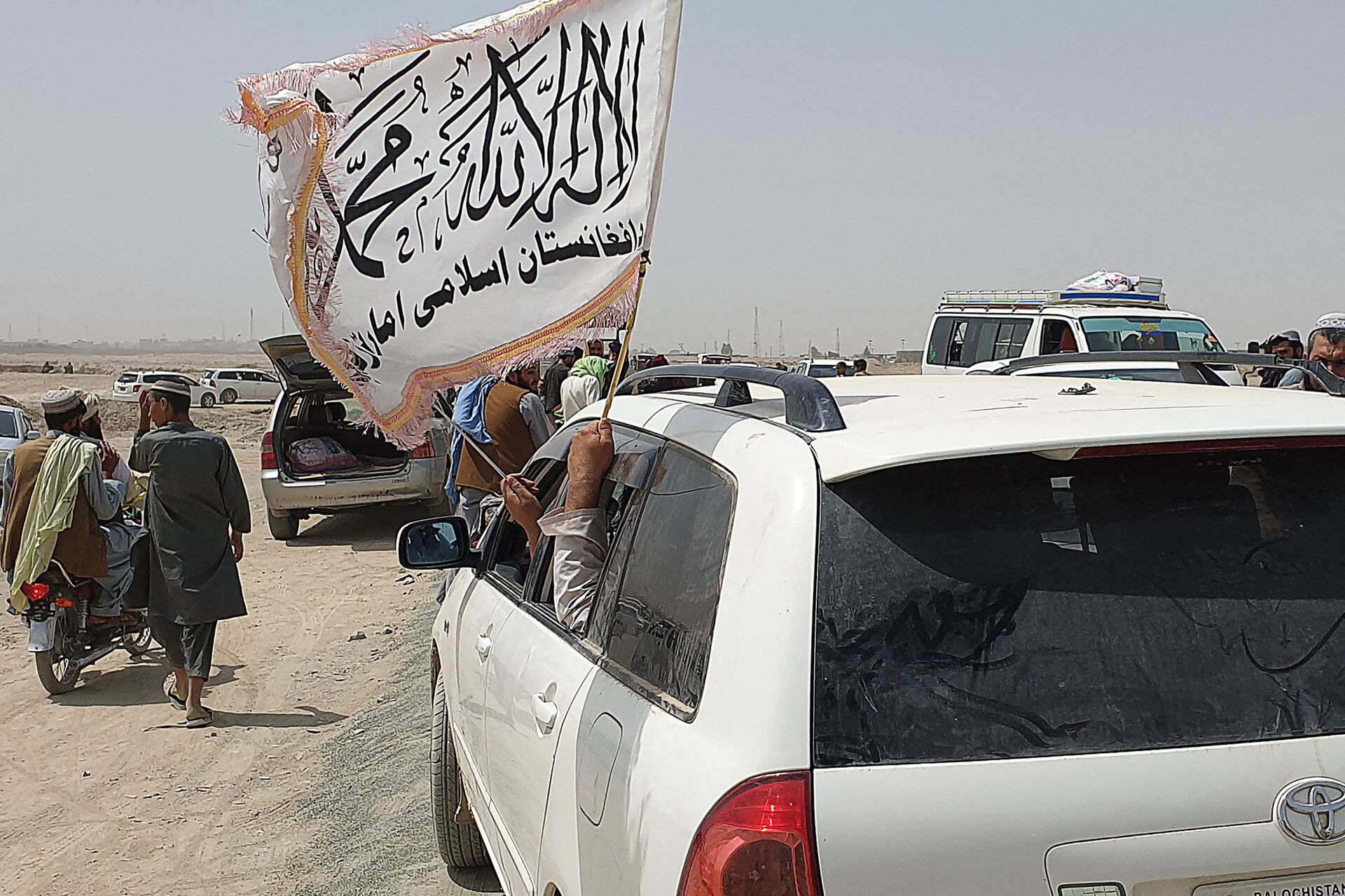Left for Dead: UK's Relocation Programme Fails to Protect Afghan Interpreters From the Taliban
13:45 GMT 04.08.2021 (Updated: 15:15 GMT 28.05.2023)

© AFP 2023 / TAUSEEF MUSTAFA
Subscribe
Up to 35 percent of Afghans who worked for the British military in the Central Asia state may be denied the right to relocate, according to the Daily Mail. The Taliban sees them largely as "traitors" and has vowed to take revenge once the UK and other NATO forces withdraw from Afghanistan. Why is the UK leaving its collaborators out in the cold?
An Afghan translator named Shaffy has found himself abandoned by the British Armed Forces following repeated attempts to get sanctuary in the UK, according to the Daily Mail.
The former interpreter had worked for Brits, both on frontline and for senior politicians, for six years but was dismissed without the right to appeal in 2013 after allegedly sexually threatening a woman officer. Shaffy resolutely denies the accusations, stressing that they could cost him and his family the possibility to relocate and evade the Taliban's* revenge. Several years ago the Afghan mujahideen branded him as an "infidel spy" and swore that he would "die like a dog".
No Guarantees That Shaffy Will Win His Case in Time
On 29 December 2020, UK Defence Secretary Ben Wallace and Home Secretary Priti Patel announced the Afghan Relocations and Assistance Policy (ARAP), a new scheme to offer relocation or other assistance to current and former locally employed staff in Afghanistan as the US and NATO forces prepared to withdraw from the region.
"ARAP and similar resettlement programmes in other countries for military interpreters are highly complex to pass because they place unreasonable requirements on applicants, lack transparency, take years to process, and often do not give applicants the right to appeal rejections that can be the difference between their survival or death," says Dr. Nishank Motwani, an Australia-based Afghanistan expert.
In light of this, individual cases such as Shaffy's "serve as tragic reminders of the labyrinth-like process for resettlement that lack transparency and are designed to fail applicants despite them putting their lives on the line in service for foreign powers," according to Motwani.
According to the academic, the UK programme to resettle Afghan military interpreters "needs to be overhauled immediately by evacuating them now to safe locations, significantly reducing the time the applications take to process, and instituting a right to appeal rejections".

An Afghan police officer keeps watch at the check post on the outskirts of Kabul, Afghanistan July 13, 2021.
© REUTERS / MOHAMMAD ISMAIL
Retired Major General Charlie Herbert has recently thrown his weight behind Shaffy, the Daily Mail reported on 2 August. Herbert, a former commander of British Forces in Helmand and a NATO adviser who worked with the Afghan translator, suggested that Shaffy faces "perhaps, the most significant miscarriage of justice".
"I believe he was badly wronged when dismissed without right to appeal in 2013, and to abandon him now to the hands of the Taliban* is to multiply that injustice a thousandfold," Herbert said as quoted by the media outlet.
The retired major general is reportedly standing to become directly involved in investigating the background of the translator's sexual harassment case.
Although Shaffy's case appears to attract greater publicity, it's unclear whether the UK authorities will review it in time before all foreign forces leave Afghanistan, highlights Motwani.
On the other hand, Maj. Gen. Herbert's involvement does not guarantee that Shaffy will win his case, especially if the sexual harassment allegations are not without some merit, says Faran Jeffery, a security analyst who focuses on terrorism and insurgency in Afghanistan and Pakistan, based in UK.
"If someone in the military or the government can vouch for you, that improves your chances," notes Jeffery. "But in Shaffy's case, I think that the accusation of sexual harassment is considered serious enough to deny somebody's request. I don't know the inside details of his case but when it comes to sexual harassment, we have to keep in mind that there's a huge cultural divide at play in these cases."
'UK Has Moral Obligation to Protect Afghan Interpreters'
According to Jeffery, Shaffy "should have the right to appeal" especially given that he and other Afghan translators risked everything to aid the UK military. If the UK cannot accommodate all the applicants, the British government should find other ways to shield its former collaborators, argues Jeffery.
"There are also other ways to help some of these people and make sure their lives are not threatened by the Taliban*," he notes. "One way is to relocate them somewhere else instead of the UK. In such a case, the UK can request a third nation to keep some of these people in exchange for financial or other incentives."

People wave a Taliban flag as they drive through the Pakistani border town of Chaman on July 14, 2021, after the Taliban claimed they had captured the Afghan side of the border crossing of Spin Boldak along the frontier with Pakistan
© AFP 2023 / ASGHAR ACHAKZAI
For his part, Dr. Nishank Motwani insists that the UK has "a moral obligation to protect Afghan military interpreters". According to him, "leaving them high and dry to be hunted down by the Taliban* would be a moral failure".
"Not only would abandoning Afghan interpreters result in them being hunted down by the Taliban, their killings would add to the moral injury and the toll the war has taken on the UK's forces and veterans in Afghanistan," he emphasises.
All in all, over 1,000 (or 35 percent) of Afghans who worked for the UK had their employment terminated by Britain without the right of appeal or challenge, thus stripping them of the right to relocate. According to the Daily Mail, it is well documented that abandoned interpreters have been threatened, ambushed, beaten, shot, tortured and, in some cases, killed by the Taliban*. The Islamist militant group has recently stepped up its offensive and has been expanding its influence across Afghanistan as the US and NATO forces are expected to complete their withdrawal from the Central Asian state in September 2021.
*Taliban is designated as a terrorist organisation in Russia and other countries.



